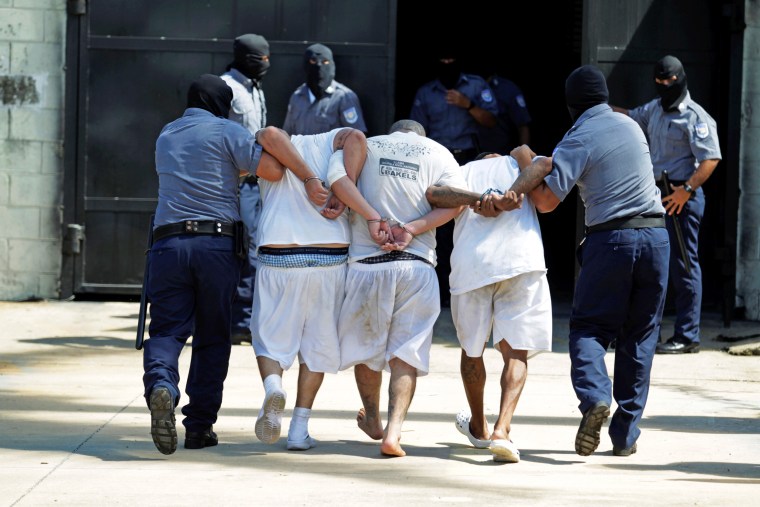El Salvador, one of the world's more dangerous countries, has recorded a rare day without a single homicide — a possible dividend of the recent truce between warring gangs.

There were no reported murders Wednesday, National Civil Police commissioner Howard Cotto told reporters.
The last time the country went a full day without any killings was Jan. 22, 2015, according to records kept by The Associated Press.
The murder rate fell by almost one-fifth last year, but El Salvador is still one of the world’s most violent countries with 81.2 murders per 100,000 residents and an average of 14.4 homicides a day.
That’s more than 10 times as bad as America’s deadliest city, St. Louis, which recorded 8.8 murders per 100,000 in 2014 according to FBI figures, and Chicago, which chalked up 6.3 per 100,000.
The country’s 6.6 million citizens live in the shadow of powerful gangs — or “Maras” — involved in drug trafficking and extortion rackets.
A tough military counteroffensive, and measures to isolate organized criminals within the jail system, have dramatically reduced killings.
But the gangs also claim credit. The three main groups — the Mara Salvatrucha, Barrio 18 Revolucionarios and Barrio 18 Surenos — forged a nonaggression pact in March in order to convince the government that the crackdown was unnecessary.
President Salvador Sanchez Ceren, a former guerrilla, took power in 2014 with the aim of confronting the gangs. Efforts were stepped up after a massacre last year in which gang members used guns and machetes to slaughter 11 people.
However, escalating violence has driven thousands northward to Mexico. In the first 9 months of 2016, Mexico received nearly 7,000 asylum requests — more than five times more than in 2013.
"We had to leave," said Teresa, a mother of three from El Salvador who fled with her children in October and is now living at a shelter for asylum-seeking families in the Mexican city of Tapachula, near the Guatemalan border.
She declined to give her name, fearing for her security. "We left home as if we were just going for a walk not to raise any suspicion,” she said.
Her son, Juan, 15, was walking to school one morning in El Salvador when two men on a motorcycle sped by and fatally shot another boy on the street in front of him. As a witness to a gang murder, Juan was now in the firing line. "They said I had to be part of their gang," Juan told Reuters.
To maintain control, gang members extort money at gunpoint, rape women and girls, murder, and force children to join their ranks, according to the U.N. refugee agency UNHCR.
"It's a refugee crisis. The situation in El Salvador, Honduras and Guatemala is critical," Paola Bolognesi, head of UNHCR's field office in Tapachula, told Reuters last year.
"People don't have an option but to flee criminal gangs who exert very strong pressure on communities. We are seeing entire families of up to 20 people fleeing to save their lives."
